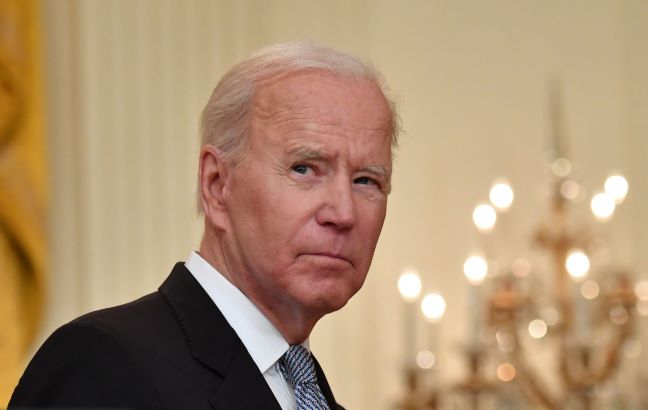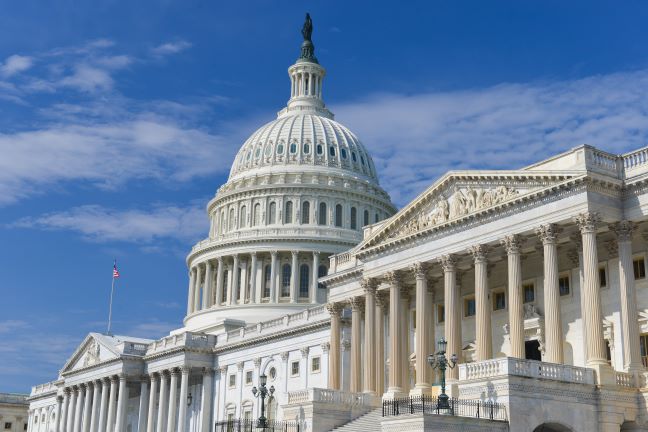Two years and a few grow to be his presidency, Biden busted out his first veto. On March twentieth, 2023, the president shut down an try to overturn a retirement investing rule that permits fund managers to issue environmental, social, and governance (ESG) issues into their decision-making processes.
You’re studying about this right here as a result of this veto might have a direct affect on numerous traders. That’s, if it sticks.
We’re right here to unpack what went down, why, and what it would imply for you.
Wait, what’s ESG investing?
Earlier than we dig into the timeline main as much as this veto, let’s cowl what ESG truly means.
ESG stands for Environmental, Social, and Governance and ESG investing focuses on firms which have clear initiatives and insurance policies in place inside these areas.
Examples of environmental elements embrace:
- Power
- Waste
- Emissions and air pollution
- Water utilization
- Pure useful resource utilization
Examples of social elements embrace:
- Equal pay and alternative
- Moral sourcing
- Sexual harassment
- Well being and security
- Social justice coaching
Examples of governance elements embrace:
- Management range
- Info transparency
- Enterprise ethics
- Board construction
- Anti-corruption measures
As an example, an organization dedicated to going carbon-negative that makes use of renewable vitality sources for energy would possibly rating excessive marks within the Environmental class.
ESG elements are non-financial in nature however can typically have an effect on an organization’s efficiency. Traditionally, fund managers have been ready to make use of these elements to investigate funding alternatives, although the Trump administration put guidelines in place to discourage this. The Biden administration reversed these.
When members of Congress needed to return to proscribing using ESG, Biden flexed his govt veto energy.
What occurred

Let’s break it down, beginning with the rule being disputed.
✔️ December 1, 2022: The U.S. Division of Labor points a last revision of the “Prudence and Loyalty in Deciding on Plan Investments and Exercising Shareholder Rights” rule. It clarifies some extent of confusion about using materials ESG elements by funding fund managers.
This last rule permits fiduciaries to think about local weather change and environmental, social, and governance elements when making funding choices or exercising shareholder rights beneath the Worker Retirement Revenue Safety Act (ERISA).
Below the primary model of this rule, proposed in October 2021, a fiduciary’s responsibility was to decide on investments primarily based solely on “pecuniary issues.” These have been outlined as financial elements that instantly have an effect on an funding’s danger/return.
Many individuals puzzled whether or not this included ESG elements. These can have targets that aren’t strictly monetary however results that positively are, and it wasn’t clear how fiduciaries have been presupposed to — or allowed — to deal with this. Use ESG? Ignore it?
The rule was revised to permit ESG issues to be included as a related danger issue so long as fiduciaries act in accordance with their plan’s targets (i.e. prudently) and preserve their plan holders’ finest curiosity in thoughts (i.e. loyally).
❗ February 7, 2023: H. J .Res. 30 is launched to the Home, sponsored by Consultant Andy Barr, by the Home Training and the Workforce committee. The committee seeks to nullify the Division of Labor rule.
This invoice is decidedly anti-ESG. Supporters wish to put the kibosh on the DOL rule as a result of they really feel that fund managers shouldn’t use ESG elements of their decision-making and that doing so could possibly be dangerous to traders.
✔️ February 28, 2023: H.J.Res. 30 passes the Home.
✔️ March 1, 2023: H.J. Res. 30 passes the Senate.
❌ March 20, 2023: Biden vetoes this decision. The invoice doesn’t transfer ahead and the rule stays in place.
Why it occurred
No matter the way you personally really feel about ESG investing and whether or not it’s a constructive or damaging follow, this veto might affect you.
Basically, Biden’s veto was in protection of ESG investing, and the message that accompanied his choice expanded on this. The president said the next:
“There may be intensive proof exhibiting that environmental, social, and governance elements can have a cloth affect on markets, industries, and companies. However the Republican-led decision would pressure retirement managers to disregard these related danger elements, disregarding the rules of free markets and jeopardizing the life financial savings of working households and retirees.”
His reasoning was that ESG investing is useful to traders as a result of it’s reasonable. It pays consideration to exterior elements similar to local weather change that might have very actual impacts on returns for a wide range of asset courses. This in the end gives safety from danger, not elevated publicity to it.
Biden’s argument is that permitting managers to make picks extra holistically advantages traders. It’s a safer long-term method to retirement investing since many firms are more likely to be impacted by local weather change and ESG elements sooner or later.
Why it issues
Environmental, social, and governance initiatives are unlikely to go away any time quickly. The truth is, an increasing number of firms are becoming a member of the trigger with new initiatives and elevated transparency.
In the case of long-term investing, the objective is to assume massive image and cut back dangers. However there are two sides to this argument.
The controversy
Supporters of the “Prudence and Loyalty” rule, and now of Biden’s veto, argue that the “massive image” ought to embrace ESG elements despite the fact that these aren’t completely monetary as a result of they’ll have monetary impacts. As an example, firms with insurance policies in place to drive social change would possibly garner extra enterprise than people who don’t and outperform them.
Opponents of the rule argue that ESG is simply too politically-charged and pushes an anti-capitalist agenda. Favoring ESG firms in investing might squeeze out different companies and tilt the market, and this facet is anxious that fiduciaries would put an excessive amount of emphasis on causes moderately than numbers (i.e. beliefs > cash).
What the veto actually means
Fiduciaries are obligated to guard their plan holders’ cash. By vetoing this invoice, Biden is arguing that ESG investing can assist to perform this.
Can the invoice nonetheless cross?
Technically, this isn’t over. There’s nonetheless an opportunity, nevertheless slim, that the GOP manages to reverse the rule in any case.
However overriding a veto requires a two-thirds majority in Congress, and that is unlikely to occur contemplating the invoice making an attempt to squash the rule was hotly contested.
The takeaway
We’ll be maintaining a tally of how this example unfolds. We’re curious to see if Biden has every other plans for that veto pen, however making political predictions isn’t actually what we do right here.
Will Biden help ESG initiatives sooner or later? Perhaps, possibly not. Proper now, it doesn’t appear to be the president is championing something as a lot as he’s simply making an attempt to guard traders.


